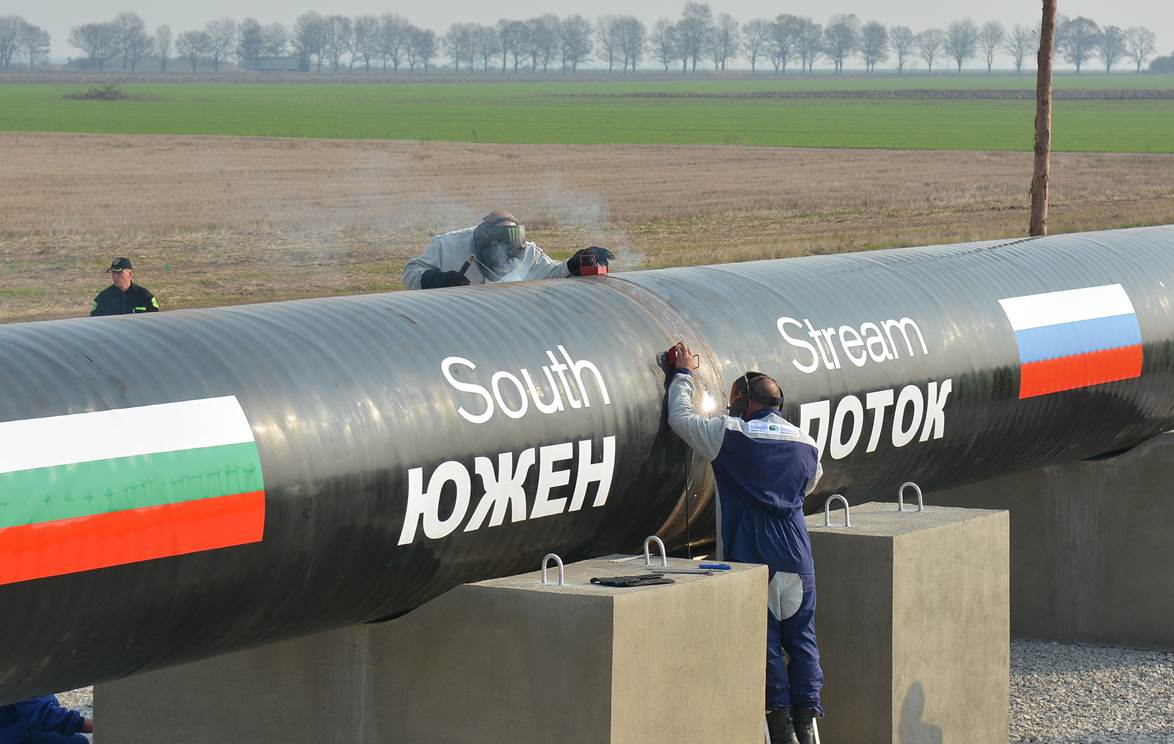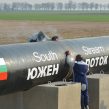
Gazprom Intent on Rolling Back EU’s Energy Market Legislation
Publication: Eurasia Daily Monitor Volume: 11 Issue: 20
By:

With the backing of the Kremlin, and some help from interested European parties, Gazprom is intent on rolling back the European Union’s Third Energy Legislation Package on EU territory. The Russian government and Gazprom have signed inter-governmental and corporate agreements to build sections of the South Stream pipeline system in six willing EU member countries (see EDM, January 30). In Germany, Gazprom has most recently taken over assets from WINGAS in full ownership, on top of infrastructure assets jointly held by Gazprom with Wintershall in Germany (see below). Also in that country, as well as in Brussels, the Russian government is pressing for the OPAL gas pipeline to be released from the stipulations of the Third Legislative Package (see accompanying article).
For its part, the European Commission has allowed Gazprom to take over WINGAS and to maintain pre-existing Gazprom–Wintershall joint control of German pipelines. The intent of the Third Legislative Package has ended up in defeat on both counts. In fairness to the Commission, those were faits accomplis, economically and politically in line with Germany’s energy policy and German-Russian relations. It is clearly less difficult politically for the Commission to tackle agreements signed with Moscow by smaller member countries (Bulgaria, Hungary, Austria, Slovenia, Croatia, Greece) to build South Stream. Indeed, the European Commission proposes to bring those agreements into compliance with EU legislation (EurActiv, January 24).
Under the EU’s Third Legislative Package, a gas producer company supplying a given market may neither own and operate, nor exclusively use, pipelines and storage in that same market. A company in that position, such as the vertically integrated Gazprom, is required to separate (“unbundle”) its supply business from effective control of the infrastructure it uses. It is also required to allow competitor suppliers to use upwards of 50 percent of those pipelines’ capacities (“third-party access”). According to the European Commission, the Third Package applies irrespective of whether the vertically integrated company in question has already made investments into the construction of those pipelines, or proposes to start doing so. For its part, Russia warns against “retroactive application” (Interfax, January 23).
This anti-monopoly legislation aims to diversify suppliers’ access and foster price competition in the EU’s energy markets. However, the unbundling requirements and options available to implement them seem flexible enough to allow some circumvention. Furthermore, the third-party-access requirement allows exemptions to be granted by the European Commission. Politically, those anti-monopoly provisions encounter resistance from Gazprom’s corporate allies in Europe, from governments representing those corporate interests, and from Russia on the level of EU–Russia relations.
Moscow awards lucrative production and service contracts to major European companies to execute Gazprom’s pipeline projects in Europe. Such contracts help generate political support within the EU for Gazprom’s projects, irrespective of the EU’s declared energy policy goals and even its legislation. Nord Stream (2005–2012), and South Stream more recently, are illustrative in this regard.
On January 29, the German consortium Europipe announced that it had won a Russian contract to supply steel pipes for the first string of the South Stream pipeline from Russia to Bulgaria on the seabed of the Black Sea, 930 kilometers in length (Gazprom declares that it plans four parallel strings on that section). Europipe will supply 450,000 tons of steel pipes, amounting to 50 percent of the steel tonnage for South Stream’s first string on the seabed. Russian OMK (United Metallurgical Corporation) shall supply 35 percent of that pipeline tonnage, and Russian Severstal 15 percent, to be shared, however, with Austrian Voestalpine (www.europipe.com, Handelsblatt, January 29).
Seven European consortiums competed unsuccessfully for this Russian contract. Most of them must pin hopes on South Stream going forward and ordering more steel pipes in Europe, where the steel industry is experiencing hard times. Europipe, a consortium of Salzgitter Mannesmann and Dillinger Huettenwerke, is Germany’s leading pipeline manufacturer. But it has been short of orders, with part of its workforce on half-time duty or idle. The Russian order ensures full utilization of production capacity and some 700 full-time jobs, if only for 12 months. According to the local press, Europipe workers feel relieved at least temporarily. Hoping for a follow-up order, they view South Stream as critical for their jobs (WAZ.de, www.derwesten.de/staedte/muehlheim, January 29, 30).
Germany’s economy is structurally dependent on Russian natural gas, and its authorities reluctant to implement the EU’s Third Energy Legislative Package with any consistency. In December 2013-January 2014, Gazprom turned its German joint venture with Wintershall, WINGAS, from a parity-based company into a 100-percent subsidiary of Gazprom. WINGAS and its offshoots had long enabled their supplier, Gazprom, to trade wholesale and retail jointly with Wintershall in Germany and to expand into Wintershall’s massive infrastructure. Such arrangements contradicted the intent of the Third Package. The breach has now widened as Gazprom takes over WINGAS entirely, with cross-border ramifications in Germany’s neighbor countries.
Furthermore, Gazprom’s fully-owned subsidiary Astora takes over WINGAS’ s underground storage capacities totaling 8 billion cubic meters (bcm), including Rehden with 4 bcm the largest storage site in Germany. The EU’s competition authorities, apparently bowing to political constraints, allowed the full takeover by Gazprom (European Commission press release, December 4, 2013), ahead of the companies’ official announcement of the takeover (www.wingas.de; www.astora.de; see EDM, January 17).
Although the Third Package requires vertically integrated companies (including Gazprom) to separate the gas supply business from effective control of the infrastructure (the “unbundling” requirement), Gazprom nevertheless holds ownership stakes and operating rights via subsidiary
joint companies in major German pipelines. WINGAS transferred these in 2012–2013 to its own spinoff company, Gascade Gastransport. While Gazprom took over WINGAS entirely, Gascade Gastransport retains Wintershall–Gazprom parity ownership. Gascade Gastransport is the controlling owner/operator of the pipelines OPAL and NEL (both dedicated to forwarding Russian gas from the Gazprom-controlled Nord Stream system), STEGAL and MIDAL (running across Germany east-west and north-south, respectively), JAGAL (receiving Russian gas from the Yamal-Europe pipeline), Rehden-Hamburg (connecting the Gazprom-led Nord Stream via NEL to Rehden, and targeting also the Netherlands market), and WEDAL (connecting Germany with Belgium). (www.wingas.de; www.gascade.de; see EDM, January 20).
Apparently, German and EU authorities interpret the “unbundling” requirement in ways that allow Gazprom nevertheless to control this massive infrastructure through subsidiaries, joint ownership and operating rights in Germany, the largest consumer of Russian gas in the EU.
OPAL is still an open issue. The European Commission and the Russian government are now in end-game negotiations over the status of this pipeline. Apart from being the largest-capacity overland gas pipeline in Western Europe, OPAL matters also because the determination of its status can influence the course of EU-Russia negotiations on South Stream’s status. The outcome on OPAL is tentatively expected within weeks, but negotiations over South Stream are just starting between the European Commission and the Russian government.




